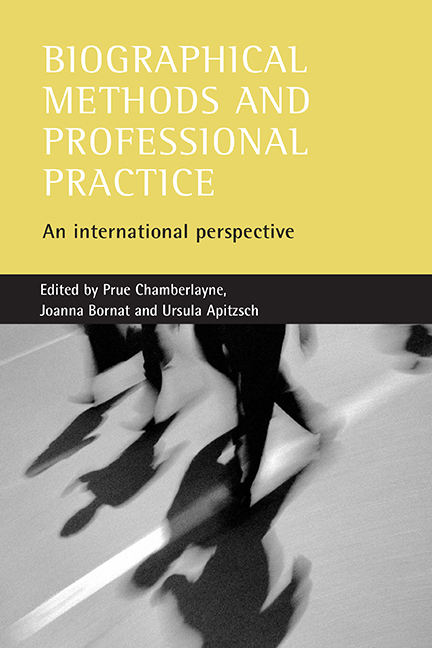Book contents
- Frontmatter
- Contents
- Notes on contributors
- one Introduction
- Part One Putting the subject into policy and practice
- Part Two Subjectivity in context
- Part Three Self-awareness in research and practice
- Part Four Recognising trajectories of disempowerment
- Part Five Biographical resources in education and training
- Index
seventeen - Interpreting the needs of homeless men: interviewing in context
Published online by Cambridge University Press: 20 January 2022
- Frontmatter
- Contents
- Notes on contributors
- one Introduction
- Part One Putting the subject into policy and practice
- Part Two Subjectivity in context
- Part Three Self-awareness in research and practice
- Part Four Recognising trajectories of disempowerment
- Part Five Biographical resources in education and training
- Index
Summary
Staff members of an advice centre for homeless men were seeking to improve the effectiveness of their service by investigating the ‘needs’ of service users, actual or potential. I was approached by one of my students to see if I could help set up and conduct a project without incurring high financial cost, and so the study was initiated within the framework of a university training programme in qualitative research. Exceptionally, the research was set up as a supervised students’ project. In weekly meetings, students planned each step of their research design with their two lecturers and reflected on their experiences. I believe that some of the conclusions of this project have important implications for the policy and practice of contemporary welfare work.
This chapter focuses on one interview-based case study involving a young homeless man who will be referred to as Bernd. In particular, I discuss the specific interactions between interviewer and interviewee, exemplifying policy conclusions from the type of relationship that was established. These interactions reveal a need to talk about ‘more intimate secrets’ that Bernd could not present explicitly, raising questions about the ‘need’ for a facilitative and supportive context in which this could happen. The project indicated that the facilities available to frontline workers within the established welfare system do not necessarily meet the conditions in which such needs can be responded to effectively.
Interview context
Before data collection could begin, it was necessary to establish the framework of the research design. The students initially met with members of staff from the advice centre where they explored the character of the centre's work and its request for an analysis of the needs of its service users or potential service users. Following this meeting, detailed discussions were held between the supervisors and the students in which two main principles of research were established. First, we decided that the research was to be non-directive. We felt that it would not be beneficial to aim it specifically towards the question of needs, and that allowing homeless men – and informants in general – to talk more freely would allow them better to express their own point of view.
- Type
- Chapter
- Information
- Biographical Methods and Professional PracticeAn International Perspective, pp. 251 - 262Publisher: Bristol University PressPrint publication year: 2004



